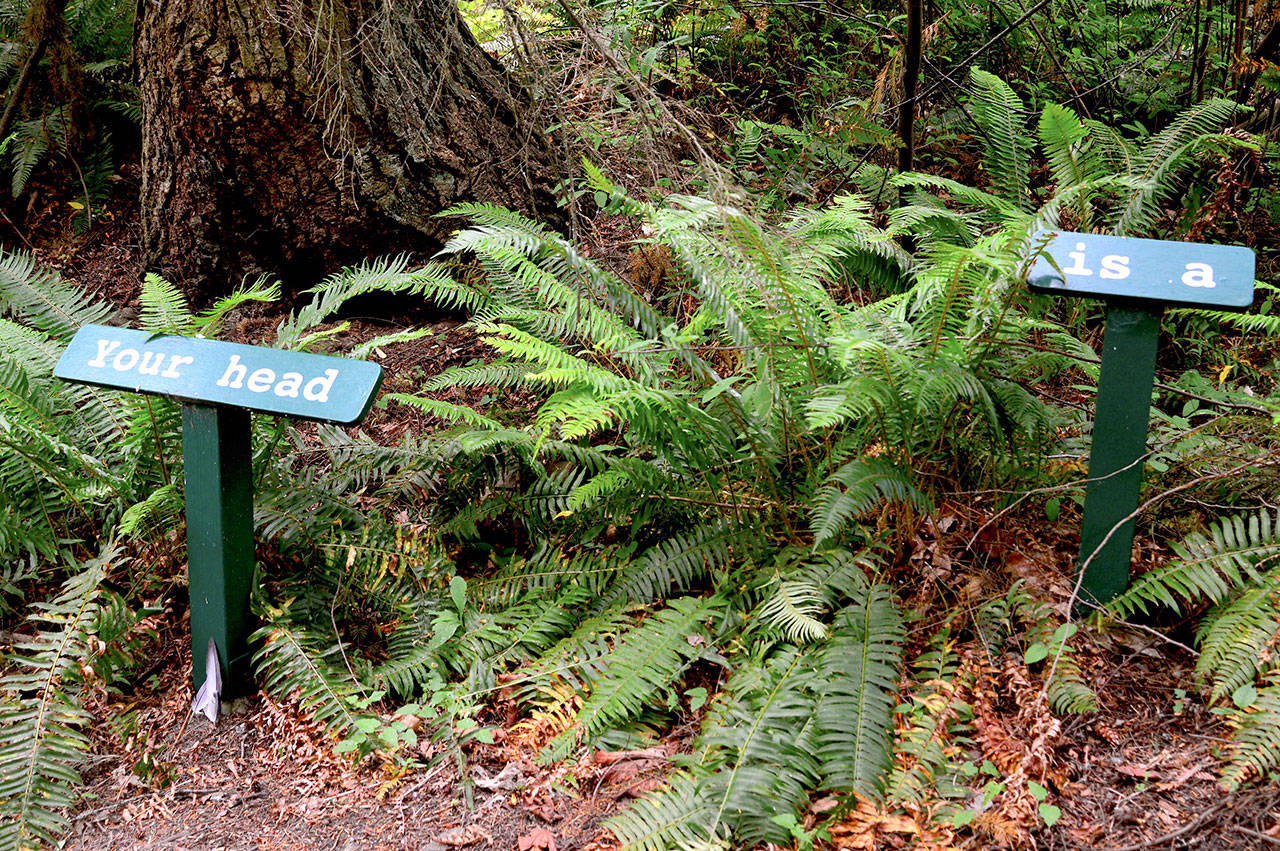PORT ANGELES — We’ve all got some old refusals. We can refuse to give up on an idea, or to accept limits on our movement and growth. Port Angeles’ Carmen Germain, daughter of working-class folks in Black River Falls, Wis., sets out to explore this notion in her new book.
“The Old Refusals,” which Germain will launch this week with a free reading, is a slim paperback jammed full of poems about worlds large and small: a kitchen, a garden, Italy, Mexico.
As part of the Solstice Art Festival today and Saturday at the Port Angeles Fine Arts Center, Germain will read and sign copies at 6 tonight; the event is free inside the center’s gallery at 1203 E. Lauridsen Blvd.
A reception for her and other participating Solstice Art Festival artists will precede that at 5 p.m. For more about the festival, see PAFAC.org or call 360-457-3532.
The poem “Potluck” contains the line that gave Germain the title for her book. “The old refusals,” she noted, comes from a line in Thomas Wolfe’s 1940 novel “You Can’t Go Home Again.”
From there, the poetry goes traveling, from pleasure to pain and back again. In “La Cucina Povera” (the peasant kitchen), she writes:
Tomatoes
only themselves, tired of names
“Describe red,” asked the blind man
Sun in your body, cells ablaze …
Tonight, you bake manicotti Calabrese style
design antipasto on a clay plate
spoon sun-dried tomatoes on a bed of anchovies
olive oil glistening on roast peppers …
“I don’t write theme-based books. I just compile poems as they come. That feels freer to me,” said Germain, who’s published two other collections, “Living Room, Earth” and “These Things I Will Take with Me.”
She’s also a visual artist, and “Fantasia in the Key of Yellow,” the painting on the cover of “The Old Refusals,” is hers. In any medium, she finds inspiration in the everyday: mowing the big field around her house in the Elwha River valley, or watching a young man gun his loud pickup truck past girls on the sidewalk.
“You have to be curious about everything,” said Germain, who this month celebrated her 68th birthday.
She first encountered poetry in high school, when a teacher introduced the class to nonconformist poet and painter e.e. cummings’ work.
“I had never heard anything like that. I never knew anyone who was a poet,” she recalled.
“The idea that a poet can say things in a poem that can’t be said just speaking to people: I was really fascinated by that.”
More than 50 years later, Germain will share space with cummings: In the Webster’s Woods Sculpture Park at the fine arts center, a line of his appears on green panels among the ferns.
“Your head is a living forest full of songbirds,” they read.
As a young woman, Germain stepped away from poetry. At 18 she wanted out of her farming town, and moved to Washington, D.C., having landed a job as a clerk-typist at the U.S. Department of Justice. Back then, she said, the FBI sent recruiters to high schools in the Midwest, hence her chance to take off for the big city.
This was before computers were ubiquitous. Life as a typist was “quite an experience,” Germain recalled. She worked on fingerprint correspondence for about a year, and then lit out for the place she’d dreamed of: California.
Working in the capital city of Sacramento, she started attending community college, which at the time cost hardly anything. She cobbled together work-study jobs and grants to make the leap to the University of California at Santa Cruz and earned two degrees in literature, one in Santa Cruz and another at the University of British Columbia.
In 1987, Germain moved to the North Olympic Peninsula, where she taught English, literature and writing for two decades. She also spent time in Italy as a visiting scholar and artist at the American Academy in Rome. Now retired, she’s devoted to her poetry and art.
To those interested in writing, Germain offers encouragement: “Discover what’s out there,” she said, in the world of literature and other art forms. Read poetry, all kinds, and see what you like.
“It’s important to have that beauty in your life: art someone made,” she said.
Germain once took a life drawing course in which she had to start by drawing a skeleton. She thought, “Oh, I could write a great poem about this.”
“I worked on it and worked on it,” before setting it aside. The would-be poem didn’t work, Germain said, because she was trying to control it too much.
“The important thing is to let the poem go where it wants to go, and be surprised by it,” she said. This works in other forms too, if you stay open.
“When I’m painting something, often it just builds organically. A mistake will take me in a different direction. There are lots of mistakes. And I like that.”

